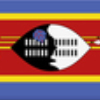INTELLECTUAL PROPERTY RIGHTS IN SWAZILAND

Opposition Term | 90 days |
Registration Term | 10 Years | First Renewal Term | 10 Years |
Subsequent Renewal Term | 10 Years |
Eswatini (formerly Swaziland) is a member of the African Regional Industrial Property Organization (ARIPO) and a signatory to the Banjul Protocol.
A trademark application can be filed either directly through the Ministry of Commerce Industry and Trade Intellectual Property Office or ARIPO.
Eswatini is also a member of the Madrid Protocol; thus, the extension of international registration of a trademark via the Madrid System is possible for the country and its applicants.
Multi-class trademark applications are allowed.
The 11th edition of Nice Classification is accepted by the trademark office.
The interested third parties may file opposition actions against a trademark application within three (03) months following its publication date in the Official Gazette (extendable at the discretion of the Registrar).
The registered trademarks have a validity of ten (10) years from the date of registration in Eswatini, which can be further renewed indefinitely for periods of ten (10) years (provided the trademark owner submits a statement confirming the USE of the trademark in the country during the preceding three (03) years or a statement that special circumstances prevented USE of the trademark).
Eswatini (formerly Swaziland) has not yet amended its law to implement the Harare Protocol (ARIPO) and the Patent Cooperation Treaty (PCT). Although Eswatini is a member of ARIPO, the enforceability of patents registered via an ARIPO application designating Eswatini is uncertain. Additionally, filing a PCT national phase application or a convention or non-convention application directly in Eswatini is not possible. Patent protection is possible by way of the extension of a granted United Kingdom-based patent (this extension is automatic) and the re-registration of a granted South African patent.
Eswatini (formerly Swaziland) is a member of the Paris Convention and ARIPO.
At present, there isn't any effective national law on industrial design registration and protection in Eswatini.
There is no provision in Eswatini for independent industrial design registration. As Eswatini is a member of ARIPO, industrial design protection can be obtained by filing an application with ARIPO and designating Eswatini. However, in the absence of the national law on industrial design registration, it is not certain as to whether enforceable rights can be obtained in Eswatini by way of an ARIPO registration or not.
An industrial design registered in the UK automatically extends protection to Eswatini. No re-registration of the UK registered industrial design is required. The industrial design remains in force in Eswatini for so long as the corresponding UK design (on which it is based) remains in force.
Industrial design protection in Eswatini may also be obtained by the re-registration of a granted South African design, in which the renewal fee is payable after five years (05) from the date of application of the South African industrial design. In the case of functional design, the Eswatini industrial design registration can be further renewed for five (05) years, and in the case of aesthetic design, it can be further renewed for two terms of five (05) years each, provided that the corresponding South African renewal fee has been paid.
Eswatini (formerly Swaziland) is a signatory to the Berne Convention for the Protection of Literary and Artistic Works.
The Copyright Act No. 36 of 1912 deals with the mechanism of copyright protection in Eswatini.
In Eswatini, the authors of creative works are entitled to copyright protection upon creation and without any formality.
The standard copyright protection term lasts for the lifetime of the author plus fifty (50) years following his death. However, the duration of copyright protection varies depending on the type of work.

